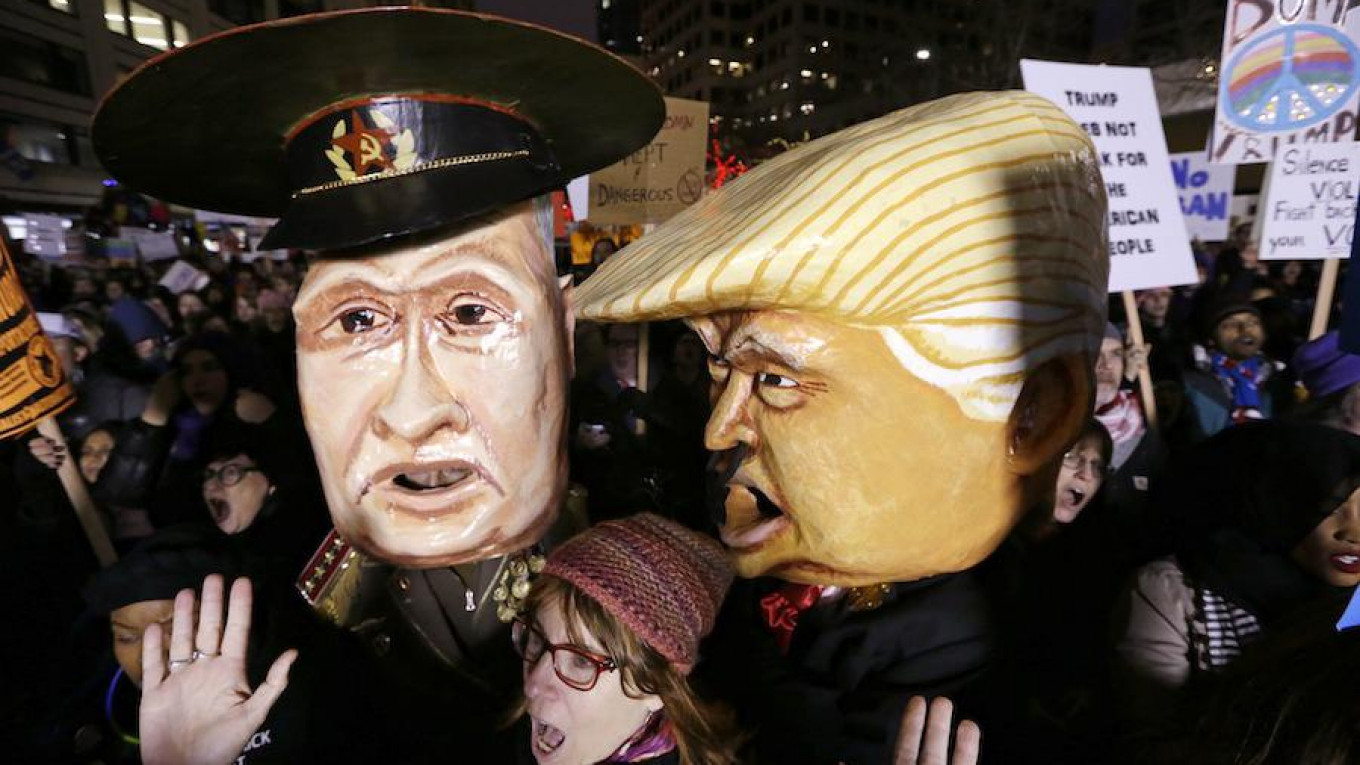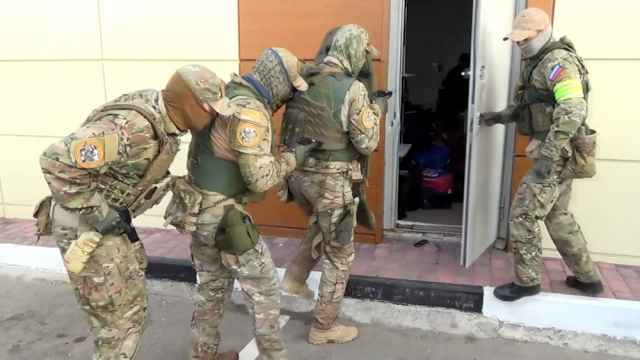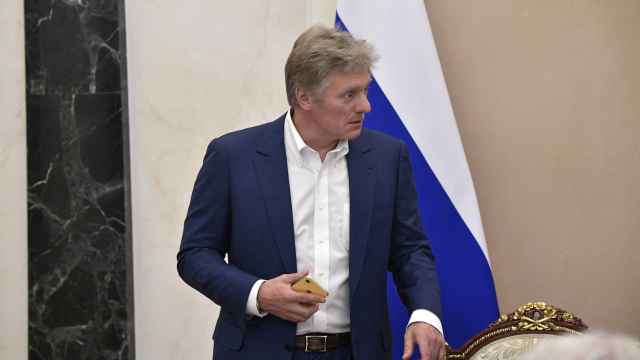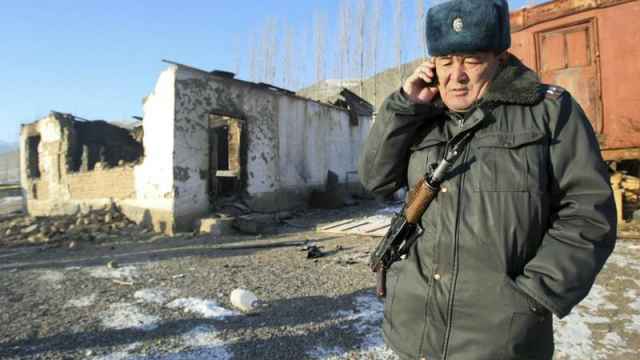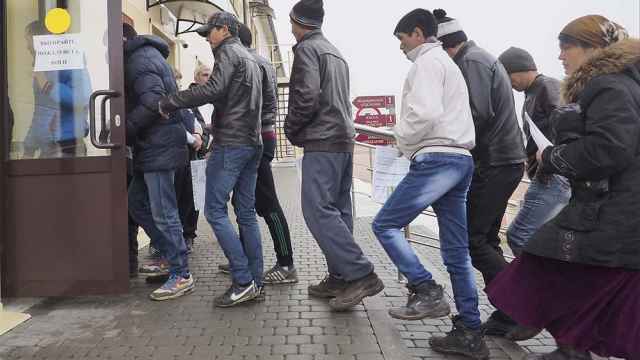Over the weekend, thousands of people in cities across the United States gathered to demonstrate against President Donald Trump’s executive order blocking citizens of 7 Muslim-majority countries from entering the United States for the 90 days.
The order led to more than 100 people – including legal permanent residents and foreign students – being detained in airports, until a series of dramatic eleventh-hour court rulings stayed their deportations.
In Russia, Trump’s “Muslim ban” naturally provoked interest. But not everyone was sure the U.S. president was "making America great again."
Throughout the U.S. presidential campaign, Russian officials and state media expressed strong support for Trump and frequently demonized his opponent, Hillary Clinton. Russia appeared particularly keen on Trump’s pro-Kremlin stance and skepticism of the Western liberal consensus.
However, state officials and pro-Kremlin journalists did not venture into great detail on Trump’s specific policies. As a result, Russians were largely left to interpret the “Muslim ban” on their own.
Some politicians decisively weighed in with interpretations of their own. Alexei Pushkov – chairman of the Federation Council’s information policy committee and one of Russia’s most social media savvy parliamentarians – was predictably supportive of Trump’s policy.
With Trump facing widespread public criticism in the U.S., Pushkov came to his defense.
“All those publicly cursing and demonstratively stripping, like Madonna and Rihanna, call Trump ‘amoral.’ They’d do better looking in the mirror.”
Russia’s nationalist Liberal Democratic Party (LDPR) also tweeted a statement in support of Trump’s policy, which said that “any additional movement of people from one country to another leads to dangerous situations” including car accidents, social tensions, and terrorism. The statement did not come as a surprise: Russians frequently compare Trump to LDPR’s over-the-top leader, Vladimir Zhirinovsky.
Public opinion, however, was mixed. Many supported the “Muslim ban,” noting the perceived danger both Islam and migrants present. Unlike the United States, the archetypal labor migrant in Russia is a Muslim from Central Asia, so the two issues are closely tied. Russians who saw Trump’s executive order as a smart security policy have also been fed a media diet of alarmism over Europe’s migration crisis.
“Green Card-holders from seven countries have been banned from entering the U.S. Good work, Trump! Muslims are residents of hell! The enemies of the Earth.”
One Twitter user stressed that Muslim countries should provide more support for Muslim refugees – though he seemed to overestimate the number of Muslim countries in the world.
“There are around 120 Muslim countries [sic]. I can’t understand why distressed Muslims aren’t receiving help in these countries. Everyone blames Trump [instead].”
Another woman criticized an unnamed singer – presumably Rihanna or Madonna – for her comments on Trump.
“I would really like for that singer to take a trip to Germany and Austria. They would tell her what the migrants are up to… Trump is right, they don’t need to run …
“… from their own countries, but work on fixing them instead. Why didn’t Russians flee anywhere during [World War II], but [they stayed and] fixed their own country.”
Others came to the defense of those affected by Trump’s executive order.
"Trump writes that Christians were being executed, and this is horrible and cannot be allowed... What's the difference? Were the Muslims killed in Aleppo not people?"
In the course of a long back-and-forth about the executive order, one user highlighted Trump’s own immigrant background.
“In general, 90% of Americans are migrants who have come from all over the world. Even Trump is the grandson of immigrants.”
Another poked fun at this inherent contradiction:
“Funny how Trump has divided Americans into those who understand that they are immigrants and those who also understand [that they are] but really hate it.”
Some Russian opposition activists saw an example for Russians in the actions of Trump’s American opponents. Leonid Volkov, an associate of opposition leader Alexei Navalny, expressed envy in a Facebook post.
He noted that dissatisfied Americans were able to protest at a critical infrastructure site without state permission. Civil society organizations were able to participate in protests without facing accusations of being foreign agents. These organizations were able to file lawsuits against Trump’s executive order and the courts immediately accepted and ruled on these suits, halting the order’s implementation. Then, officials stopped acting in accordance with the executive order and started following the court’s ruling.
“How do I feel about this story (about which many wonderful films will probably be made)? I feel envy. I’m burning with envy.
“And I have an even greater desire to achieve the same thing: independent courts, separation of powers, strong non-governmental organizations and, most importantly, concerned citizens.”
Natalia Pelevina, an activist with the opposition People’s Freedom Party, described being in America during the Sept. 11 terrorist attacks. In a Facebook post, she recalled how people of different faiths and ancestries were all killed in the attacks on the World Trade Center.
“The entire country, people of different faiths, [immigrants] in the first, second, tenth generation from all countries of the world – including Pakistan, Iraq, Syria – everyone wept together, supported each other, and helped each other deal with this tragedy. Without exaggeration, a feeling of brotherhood, mutual help, and love prevailed in the country. Complete strangers embraced each other, fed each other, held hands. During those days, I loved America with my whole heart. And now a crazy upstart is trying to destroy that America by artificially messing with the minds of the least educated and most vulnerable categories of the country’s citizens.”
But the “great America” would survive, Pelevina said.
“Civic activism will reach an unseen height. Perhaps these events are a necessary shake-up and a real moment of truth for the country.”
A Message from The Moscow Times:
Dear readers,
We are facing unprecedented challenges. Russia's Prosecutor General's Office has designated The Moscow Times as an "undesirable" organization, criminalizing our work and putting our staff at risk of prosecution. This follows our earlier unjust labeling as a "foreign agent."
These actions are direct attempts to silence independent journalism in Russia. The authorities claim our work "discredits the decisions of the Russian leadership." We see things differently: we strive to provide accurate, unbiased reporting on Russia.
We, the journalists of The Moscow Times, refuse to be silenced. But to continue our work, we need your help.
Your support, no matter how small, makes a world of difference. If you can, please support us monthly starting from just $2. It's quick to set up, and every contribution makes a significant impact.
By supporting The Moscow Times, you're defending open, independent journalism in the face of repression. Thank you for standing with us.
Remind me later.


